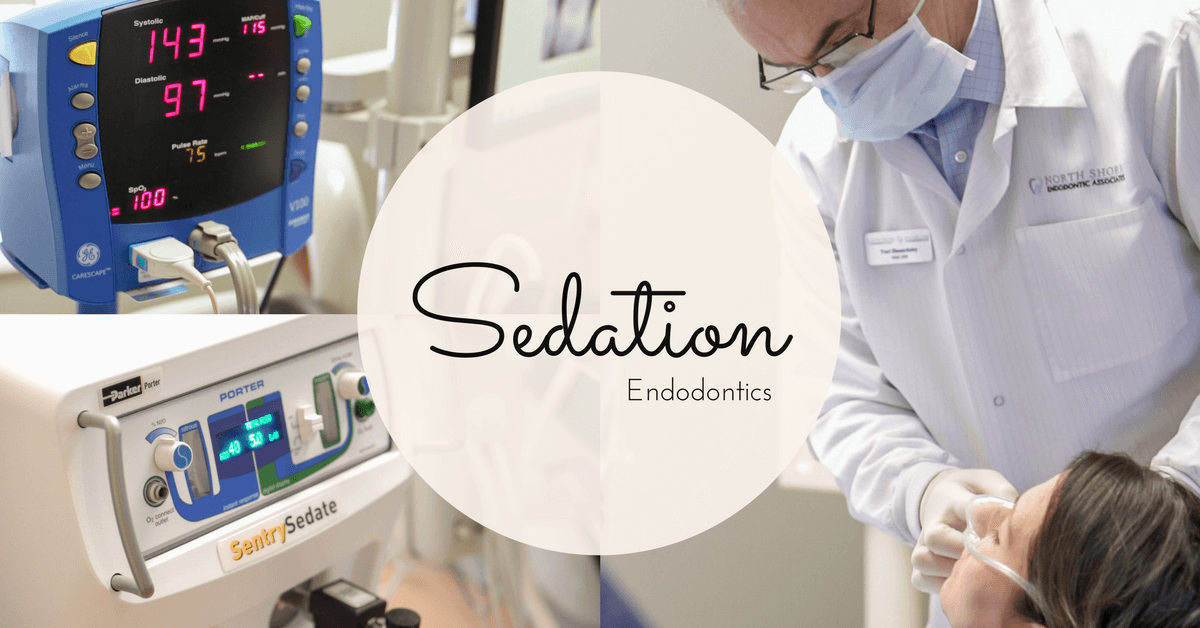
North Shore & Brookline Endodontics (NSBENDO) provides Sedation Endodontics in Brookline, Peabody, Beverly, Gloucester, and Newburyport. Contact us today at one of our five locations to learn more about the advantages of sedation endodontics and schedule your appointment.
What is Dental Anxiety?
Dental anxiety is common among our patients. At North Shore & Brookline Endodontics (NSBENDO), we understand and respect patient fears and concerns. We strive to create a relaxed environment in our dental office, and we take time to consult with each patient to determine his or her level of anxiety. With our compassionate and gentle approach to the dental needs of our patients, most of them find the experience of having root canal treatment to be much easier than anticipated.
Dental anxiety doesn’t usually appear for no reason. Rather, it can be caused by a traumatic dental experience, previous trauma to the head, face, or neck, Generalized Anxiety Disorder (GAD), trust issues, and phobias such as claustrophobia or agoraphobia.
For those who suffer from dental anxiety, the dread of going to the dentist for any type of procedure can be very hard to overcome. Many experience some of these symptoms:
Increased heart rate and heart palpitations
Sweating
Nervousness
Aggression
Panic
High or low blood pressure
Fainting
Visible distress
Racing thoughts
Oral medication can be prescribed to help manage anxiety during dental visits.
The experience can be different for everyone, but finding solutions so that the dental procedures can be done is vital for oral health. And, that’s where sedation comes in.
For our patients who have a higher level of dental anxiety, we are equipped to provide multiple sedation options that will ease patient’s fears while keeping them safe and relaxed throughout their procedures. The right sedation level is based on a patient’s level of anxiety, medical history, prior sedation history and necessary treatment. We work closely with you to determine the best sedation option based on all of these factors.
Benefits of Sedation Dentistry
Provides relief from anxiety and phobias.
Allows the patient to be relaxed during dental treatment, emphasizing the importance of patient comfort.
With anxiety under control, the endodontist can move more quickly through the treatment, helping patients complete necessary dental work without delays.
Offers relief from pain or discomfort during the procedure, with IV sedation providing stronger relaxation for those who need it.
If you are interested in Sedation Endodontics, please contact our office to schedule a consultation with one of our sedation endodontists. If endodontic treatment is recommended, the endodontist will propose the possible sedation options and discuss the advantages, disadvantages and risks related with each level.
All levels of sedation options require specific pre and post-operative instructions, which will be given to patients and discussed during the sedation consultation. To aid our doctors and staff in the success, comfort and safety of your dental treatment, please follow all pre and post-operative instructions.
At NSBENDO, safety and comfort have always been, and always will be our top priority.
We have found that offering various forms of sedation has helped us to achieve this with our patients.
To learn more about our sedation services, contact our office.
Frequently Asked Questions about Sedation Endontics
Absolutely. Prior to your root canal treatment, we can discuss the options available to you for the procedure. This may include nitrous oxide, oral sedation, or something stronger. Oral sedation is particularly effective in reducing anxiety, allowing the dentist to complete treatments in fewer appointments.
Yes, sedation is generally safe to use for endodontic procedures. Our expertise in root canal therapy ensures that we provide comprehensive endodontic services while prioritizing your safety. Prior to your procedures, we will discuss the different types of sedation available for your particular situation and will go over the different risks involved. Depending on overall health and medical history, some forms of sedation may be more risky for one patient than for another. So, it is important to be honest and open with your dental team.
All forms of sedation work well when used under the right circumstances. Local anesthesia is the most commonly used type of anesthesia. But, although it numbs the area and makes dental procedures more comfortable, it doesn’t help those with dental anxiety and fears. Sedation dentistry offers various options such as oral sedation, IV sedation, and general anesthesia to ensure safety and comfort for patients with anxiety.
